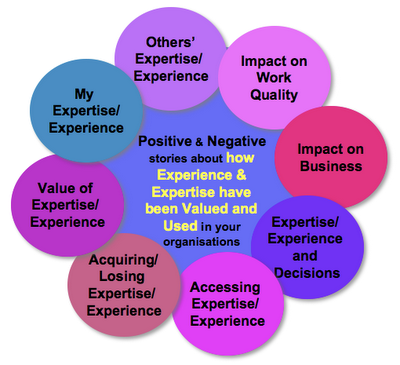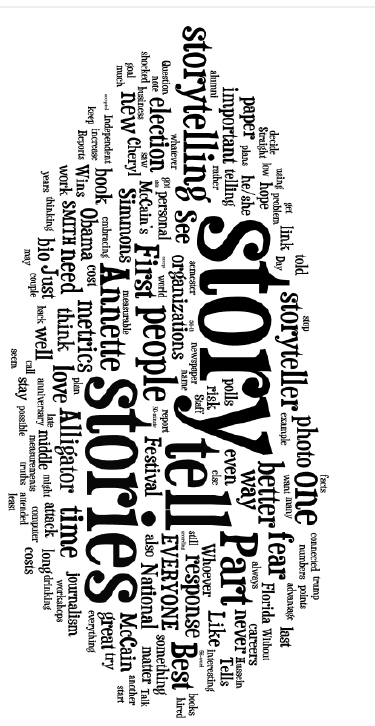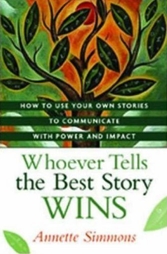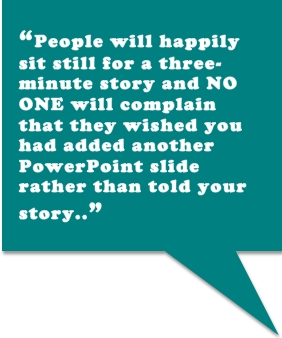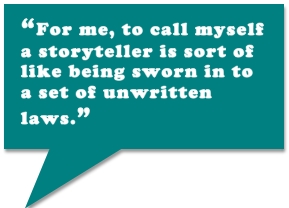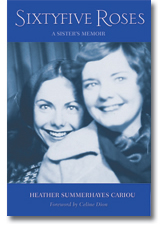
See a photo of Annette, a link to her bio, and Part 1 of this Q&A, Part 2, and Part 3.
Editor’s note: You’ll note that Annette’s response was written before the election. She actually submitted it a long time ago — during the summer of 2008 — but somehow I never got it. While I regret not being able to publish that response before the election, it’s fun to see it with the election outcome in mind. For example, it’s interesting to look at her response and think about McCain’s response to economic meltdown. Pundits have said that McCain’s telling the story that “the fundamentals of the economy are sound” is what cost him the election. It’s also interesting to reflect on Obama’s 30-minute infomercial as his response to “Who I am, and WHY I am here.”
Q&A with Annette Simmons (Question 5):
Q: In Whoever Tells the Best Story Wins, you write about political stories. What kind of story will win the upcoming presidential election, and which candidate is most likely to tell that story well?
A: First I want to say that context is everything. If we have another attack, if there is a run on the bank… or if something BIG happens, then Obama and McCain will tell their story by how they respond to these issues. It will eclipse their “scripted” stories. We will be watching their stories live as they happen. If they have approached storytelling from deep authenticity, living as well as telling “stories” that authentically convey, “Who I am, and WHY I am here” then their actions and words will be congruent and their stories will be told in real life as it unfolds (limited by media edits that can misconstrue). For me, deciding who you are and why you are here comes first, and stays true no matter what the circumstances. I understand they may vet some stories according to polls, but polls should not be a part of the first decisions. If either one of them start using stories to be something they are not in order to respond/manipulate polls they risk losing their core (both in terms of personal strength and constituency).
Both men wrote books that told their stories well. McCain’s was a while back, but they both put a stake into the ground, “this is who I am.” Obama is a better communicator, so he has an “unfair” advantage in telling his story. McCain has done the best thing by embracing his “speak first, think later” style as part of his story by naming his bus/airplane the “Straight Talk Express.” He should stick with that story – he isn’t a master of rhetoric and never will be. He can own the “straight talker” image. He should maximize it rather than minimize it. All weaknesses can be strengths and vice versa.
As pressure builds to turn “why I am here” into “how we will do this” 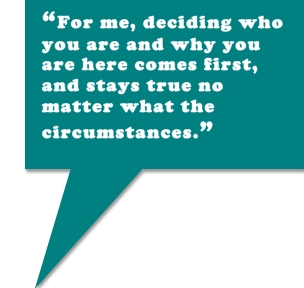 both are at great risk. The “how” of any great goal is always divisive. Any realistic plan encounters inescapable truths that safety costs money/time, quality costs time/money. No matter what plan, no matter which goal -opposition will rip the guts out of it by emphasizing the down side. Selling your “how” is the hardest story to tell. It needs to include a “I know what you are thinking” story to pre-empt the attacks. I think they will both avoid concrete plans for that reason. It is easier to keep the plans fuzzy – but they both lose points when they do.
both are at great risk. The “how” of any great goal is always divisive. Any realistic plan encounters inescapable truths that safety costs money/time, quality costs time/money. No matter what plan, no matter which goal -opposition will rip the guts out of it by emphasizing the down side. Selling your “how” is the hardest story to tell. It needs to include a “I know what you are thinking” story to pre-empt the attacks. I think they will both avoid concrete plans for that reason. It is easier to keep the plans fuzzy – but they both lose points when they do.
Obama is the better storyteller and has a better story to tell. Creative types are itching to tell it for him, spread the story. For instance, having Hussein as his middle name and NOT being Muslim is one story young people are “retelling” by posting it as THEIR middle name (at least on Facebook..i.e., Annette Hussein Simmons). His tour of the Middle East is plastering presidential-looking photos on TV and in newspapers – images tell a powerful story. He is savvy about photo ops.
If there is an attack, or manufactured fear of an imminent attack then McCain may have an advantage if he chooses to tell a story of fear. Biologically, in a short-term experience, stories of fear usually trump stories of hope when competing for human attention. If they both try to tell stories of hope, Obama has a better story to tell and is a better storyteller. If McCain can stimulate enough fear his military story might seem safer to frightened people. However the population seems to be experiencing fear fatigue so it is possible fear won’t trump hope this time.


